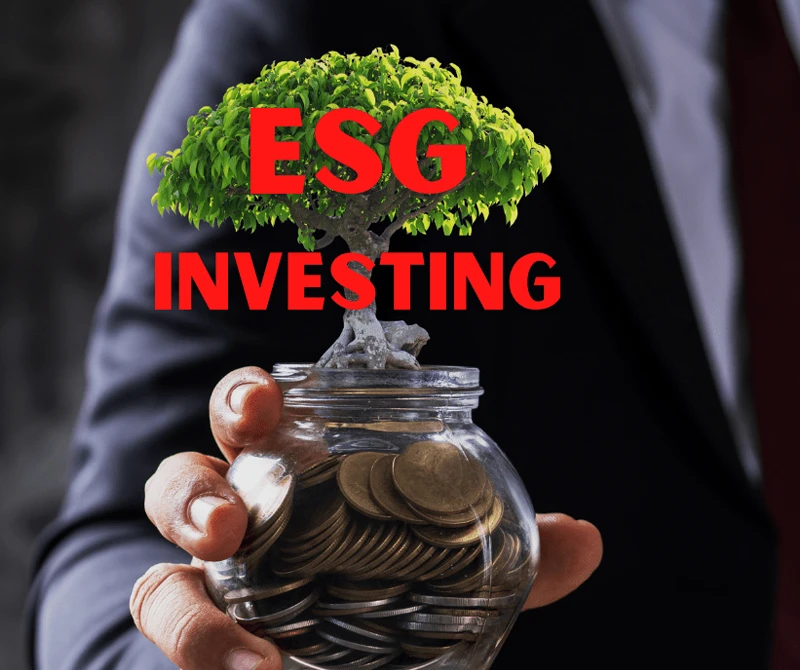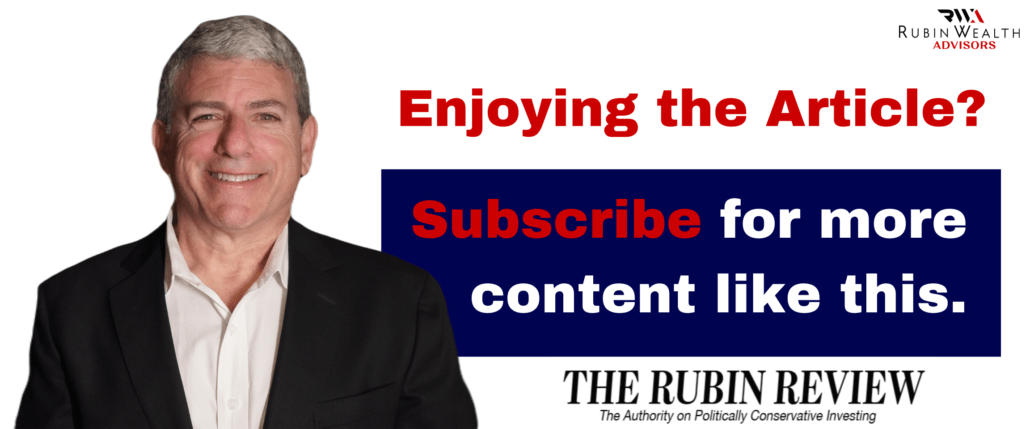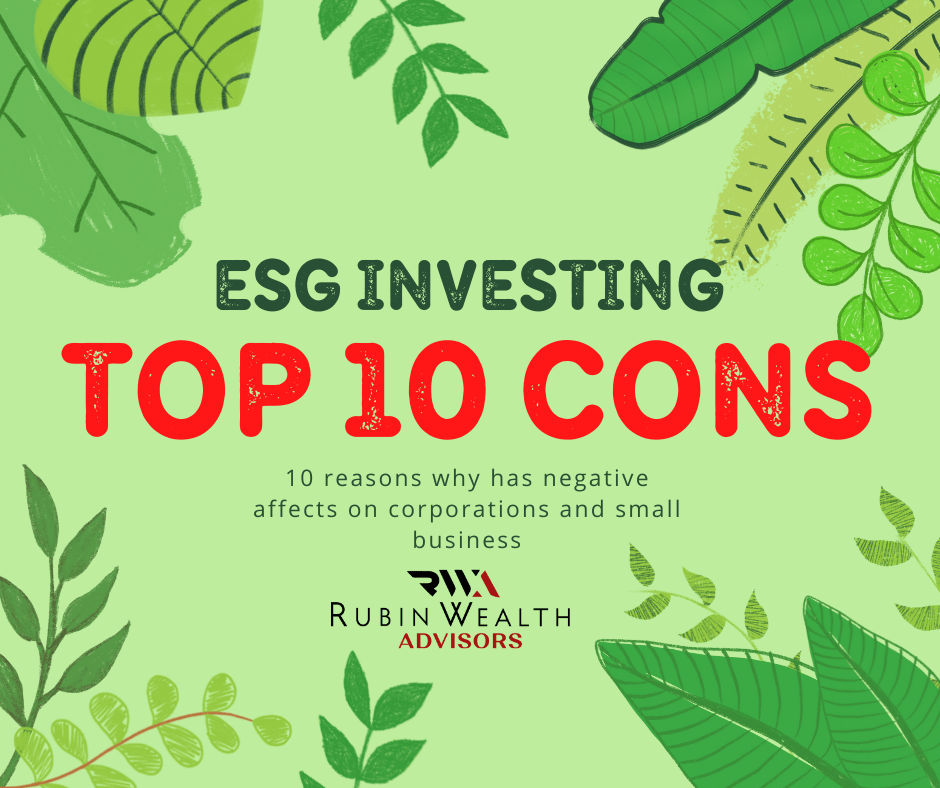ESG is Bad: Conceptually Simple, Yet Complex
/in Uncategorized /by Bob Rubin
“Environmental, Social, and Governance” is a hot topic when it comes to investing, but what does it mean?
We all have a moral compass, and there are some investments that we should avoid because they violate our sense of right and wrong.
Despite the illegality of the narcotics trade, we know it can yield enormous profits, but we refuse to pursue these opportunities due to their moral wrongness.
This moral compass conflict is why I suggest that ESG should be tailored to the needs of each investor.
In other words, ESG is not a one-size-fits-all solution.
Nevertheless, asset managers and corporate entities apply a one-size-fits-all approach to ESG investing.
The nature of investing is opinionated and exclusive to each individual.
Oil companies that produce hydrocarbon fuels may arouse the aversion of some people who believe anthropogenic greenhouse gas emissions pose an existential threat. Others believe global warming is no big deal, so they invest in oil majors.
Russia Ukraine Test ESG Theory
The Russian invasion of Ukraine has undoubtedly tested ESG theory. ESG activists shun the arms industry because it costs lives. Could it not be argued that the manufacture of weapons acts as a defensive deterrent?
The Budapest Accord could have prevented Russia from invading Ukraine, averting war and saving hundreds of thousands of lives if Ukraine had not agreed to disarm. Should the arms industry be excluded from capital markets based on environmental, social, and governance concerns?
Answering this question is neither right nor wrong. Different people formulate different views about politics and religion. Therefore, I argue that managing ESG objectively is not possible. In a way, it is very subjective.
Fund managers should formulate their fund manifestos and let investors use that as the basis for deciding whether or not to invest in their funds.
In my opinion, ESG is poorly done. My next point will explain why too many people treat this as a “tick-box” exercise.
In trying to create an algorithmic screen for their fund managers, asset management firms often miss the nuances of ESG. ESG criteria cannot be objectively quantified, so that this approach will fail.
How can an algorithm based on the same third-party ESG data used by every other asset manager achieve to distinguish itself by having a more strong ESG ethos than its competitors?
Similarly, ESG analysts should publish their unique subjective view of the moral compass of corporate entities, just as equity analysts do with the fundamental economics of a company. Investing responsibly is the only way an asset manager can stand out from the competition.
Why ESG Compliance is Bad
In this case, there is a kind of self-serving flywheel at work. I will explain why ESG compliance is a bad idea.
In turn, asset management companies want to attract money from self-righteous investors. Those who manage funds on both financial and ethical criteria are likely to be able to charge higher fees, knowing its criteria are increasingly important to generate more extensive fees from self-righteous investors. So, when they try to appear ethical in order to attract capital from the markets, they often shoot themselves in the foot.
What would you do in any of these situations? Do you plan to sell your shares in these companies? Are you willing to divest from an irresponsible country’s sovereign debt?


Are you concerned about inflation, ESG compliances, and the 2022 crypto crash?
Your investment portfolio can be affected by any or all of these factors.
Schedule an appointment with Bob Rubin, your dedicated, conservative financial advisor, for a free portfolio analysis today.
Get started by clicking the button below.
Related Articles
No BS… Just straight forward advice
Contact Bob, the Nation’s Predominant
Politically Conservative Financial Advisor Today!






